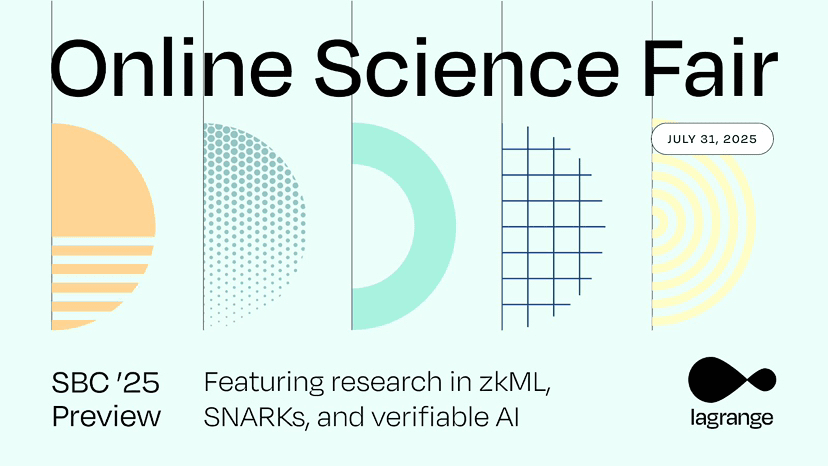
Why not come and take a look?
1. Ordinary developers can also get started; don't be scared off by 'zero knowledge'
You don't need to study mathematics; just connect to the API provided by Lagrange, and you can submit computation requests, generate ZKP in the background, and verify results on-chain. This is much safer than writing nodes yourself and querying historical transaction databases. You only need to focus on your business and not worry about whether 'it can be trusted'.
2. AI developers can also practically implement zkML
You want to create an AI model, and the user wants to verify that the randomly generated results haven't been tampered with? You write a DeepProve interface, and when the model runs inference, you send the proof along. The user can verify using on-chain logic, so they can 'trust it hasn't misbehaved'—confidence is high.
3. Cross-chain scenarios: You can trust on-chain DAO voting
Suppose a DAO votes on other chains, and you want to verify the results on Ethereum; you can use the Coprocessor or Prover Network to provide evidence. The results are directly verified on-chain, without bridges or centralized oracles; who wouldn't like this sense of certainty?
4. Resource allocation doesn't rely on luck: DARA matching mechanism helps you out
When you submit a proof request, you state 'how much I'm willing to pay at most and how long I need'. Nodes report their capacity and price. If there's a disagreement, DARA automatically matches them. You won't waste money, and nodes feel fairly compensated; the market mechanism is much more reliable than project self-selection.
5. Who is backing you up? A trust-filled institutional alliance
This is not some small team conducting minor experiments. EigenLayer's force + Coinbase/Kraken/NVIDIA and others joining in, along with Founders Fund investing money, provides strong endorsement.
6. Think about the future: with AI + Web3 + data analysis all needing to be 'verifiable', who can be the first to create a trusted foundation?
What Lagrange is doing is somewhat forward-looking: in the future, you might interact with AI, perform cross-chain queries, and conduct data analysis... all these need to be 'verifiable'. This is not the future; it is a real path being paved. The infrastructure of LA is the 'chassis' of this road.
Summary of this article:
Lagrange is not just a concept; it is a platform that you can immediately connect to, use, and verify 'trustworthiness'. Whether it's AI scenarios, cross-chain DAO voting, or DeFi data reconciliation, as long as you want to verify 'it is real', Lagrange can intervene.